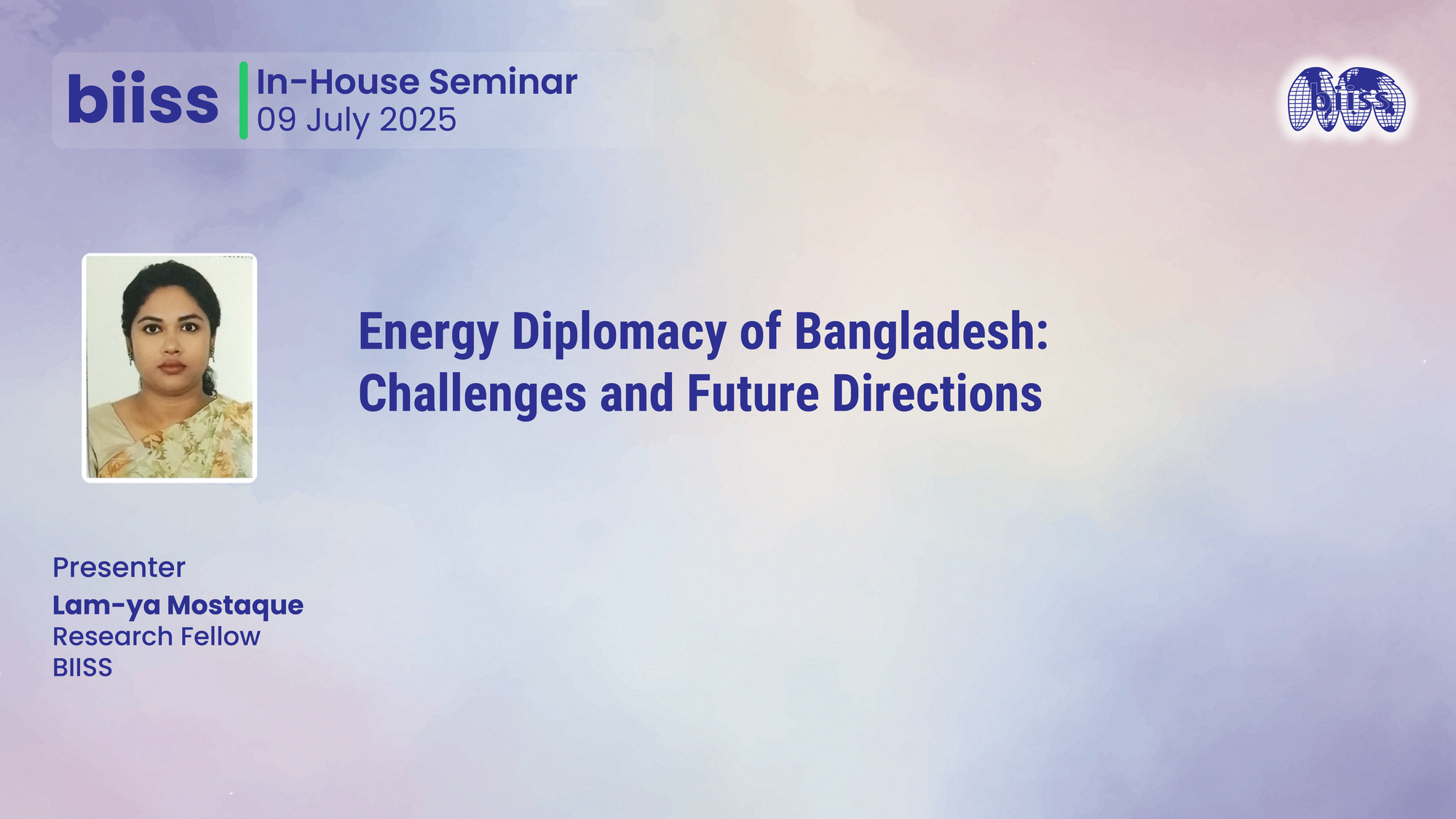
This in-house seminar focuses on how Bangladesh can shape an energy diplomacy that secures reliable supplies, stabilizes prices, and advances a pragmatic transition pathway. The discussion begins with the structure of the national energy mix and exposure to import volatility in fuels and technology. Speakers consider options for diversified sourcing through long term contracts, flexible spot procurement, regional power trade, and cross border pipelines, while weighing infrastructure readiness and financing conditions. The session reviews the role of gas, LNG, refined products, and power sector reforms for distribution, tariff design, and loss reduction. It then explores opportunities in renewables and storage that fit local resource profiles and grid constraints, along with mechanisms to mobilize investment through blended finance and risk sharing. The seminar highlights diplomacy channels for technical standards, grid synchronization, and data transparency that reduce uncertainty for private capital. It also covers resilience planning, including emergency stockholding, demand side management, and climate risk screening for critical assets. Participants identify institutional steps that would improve interagency coordination and regulatory clarity, define credible project pipelines, and strengthen negotiation capacity. The objective is to translate a complex external environment into a coherent strategy that protects consumers and industry today while setting up conditions for clean growth over the medium term.
